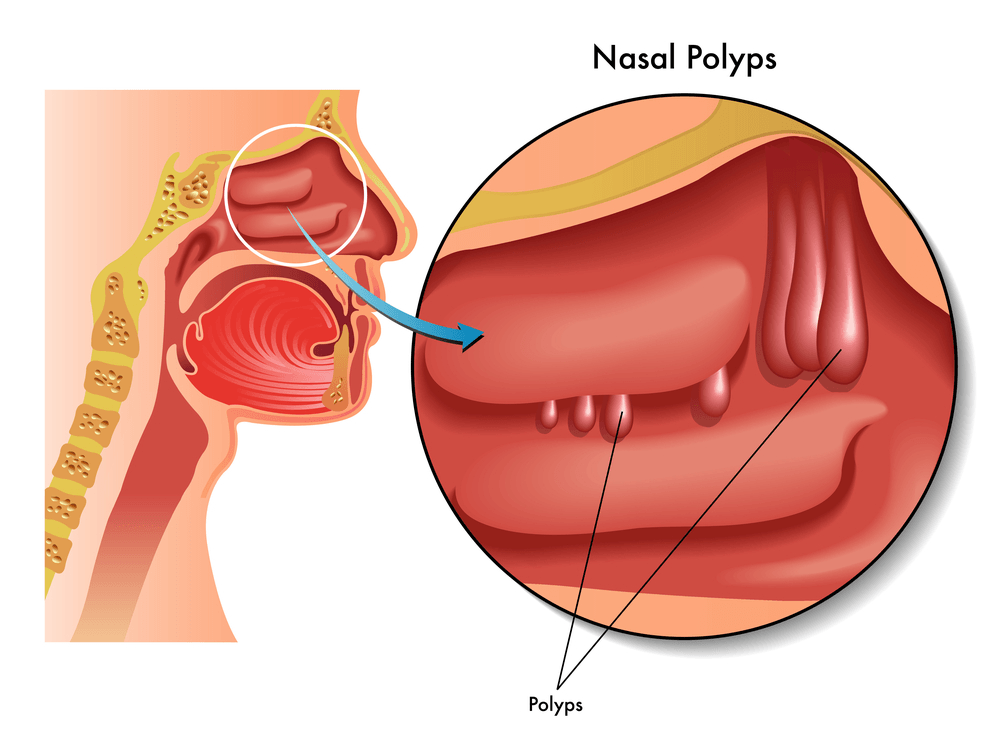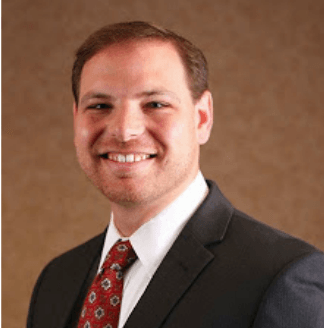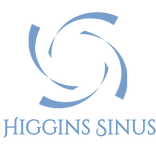How to Get Rid of a Sinus Headache: Insights from a Sinus Doctor
Learn about sinus headaches from a sinus doctor (rhinologist). Dr. Thomas Higgins sheds light on the common confusion between sinus headaches and sinusitis and how he guides patients through the often-misunderstood journey of pinpointing the true source of their pain and navigating towards effective relief.

As someone who constantly sees patients struggling with headaches attributed to sinus issues, I've noticed a concerning trend: many people self-diagnose their condition without understanding the underlying causes, which leads to ineffective relief. Many people don't recognize that not all sinus headaches are the result of sinusitis. Many conditions can mimic sinus headache symptoms, and getting the right diagnosis is the first step in finding relief.
Diagnosing the Right Condition
When patients come to me with a headache they believe is sinus-related, it’s my job to conduct a thorough examination. This involves a detailed history, physical examination, nasal endoscopy, and sometimes imaging such as a CT scan or MRI if needed. It's important to consider that diagnoses may overlap, making the situation more intricate. Here is an overview of some common sinus headache causes and how they are treated.
Common Sinus Headache Causes and Treatments
Mucoceles in the Sinuses
Diagnosis: A mucocele is a mucus-filled cyst that can block the sinuses, leading to pressure and pain that causes a sinus headache. People who have had prior head trauma are particularly at risk for sinus mucoceles.
Treatment: Treatment typically involves surgery to remove the blockage and restore normal sinus drainage. Endoscopic sinus surgery can often completely resolve sinus headaches from sinus mucoceles.
Sinus Tumors
Diagnosis: Although rare, benign or malignant sinonasal tumors can cause symptoms similar to sinus infections. Sinus neoplasms can erode the bone of the sinuses or causes severe sinus pressure and lead to sinus headaches.
Treatment: The approach here could range from monitoring to surgical removal, depending on the type and growth rate of the tumor. Typically, surgery to obtain a biopsy is important for determining the type of sinus tumor is present.
Sinus Infections (Sinusitis)
Diagnosis: True sinus infections are characterized by purulent nasal discharge, obstruction, facial pain/pressure, and reduced sense of smell. Sinus headaches associated with these symptoms are likely to be sinus infections. Interestingly, sinus headaches without other symptoms may not be sinus infections or sinusitis at all.
Treatment: Antibiotics are prescribed for acute bacterial sinusitis, along with decongestants and saline rinses. Sinusitis caused by inflammation may be treated with nasal steroid sprays or oral corticosteroids. Fungal sinusitis may be treated with corticosteroids, antifungal medications, or surgery, depending on the type. Patient with chronic rhinosinusitis with nasal polyps (CRSwNP) often require a combination of nasal polypectomy, sinus surgery and medications that reduce inflammation.
Allergies
Diagnosis: Allergic rhinitis can cause sinus headache-like symptoms due to inflammation from allergen exposure.
Treatment: Avoiding allergens, using antihistamines, nasal corticosteroid sprays, and considering immunotherapy are effective strategies.
Migraines
Diagnosis: Migraines often present with unilateral throbbing pain and sensitivity to light or sound. Other symptoms may include nausea, vertigo (vestibular migraine), eye pain (ocular migraine), and daily persistent headaches. Many people attribute sinus headaches from migraines to sinusitis, but it is often not the case. A professional workup is important to distinguish migraines from sinusitis so that timely, effective therapy can be initiated.
Treatment: The treatment of migraines encompasses both acute and preventive strategies. Acute migraine treatments are aimed at relieving migraine symptoms during an attack and may include nonsteroidal anti-inflammatory drugs (NSAIDs), triptans--which are specific migraine-relieving medications--and antiemetics for associated nausea. For those with vestibular migraines, which are characterized by dizziness and balance disturbances along with or in place of the usual headache, additional medications like antihistamines or anticholinergics may be used to address the vertigo component. Preventive migraine treatments are used to reduce the frequency, severity, and duration of migraine episodes. These can involve beta-blockers, calcium channel blockers, antidepressants, or antiepileptic drugs. Additionally, monoclonal antibodies targeting CGRP (calcitonin gene-related peptide) have emerged as a newer class of preventive medication specifically for chronic migraine sufferers. Lifestyle modifications, such as maintaining a consistent sleep schedule, staying hydrated, avoiding known dietary triggers, and stress management techniques, are also important aspects of an overall treatment plan.
Tension Headaches
Diagnosis: Tension headaches, often characterized by a dull, aching pain that envelops the head like a tight band, can sometimes be mistaken for sinus headaches due to the overlap in symptomatology. People with sinus headaches typically report pressure or pain in the forehead, cheekbones, and bridge of the nose, areas which can also be affected by tension headaches. This confusion is compounded by the fact that both conditions can present with ancillary symptoms such as a feeling of pressure in the head and fatigue. However, true sinus headaches are usually related to an underlying sinus infection and are accompanied by nasal congestion, thick nasal discharge, fever, and a sense of fullness in the ears. Tension headaches, on the other hand, lack these respiratory symptoms and are more often associated with stress, muscle strain, or postural changes affecting the neck and scalp muscles. If you have neck tightness, neck pain (cervicalgia), or have had a history of neck-related surgery or issues, you should consider tension headaches as a cause of your symptoms.
Treatment: The treatment for tension headaches primarily focuses on pain relief and prevention. Over-the-counter analgesics such as ibuprofen, acetaminophen, or aspirin are commonly used to alleviate the pain of a tension headache. Additionally, non-pharmacological methods such as applying heat or ice to tense muscles, engaging in relaxation techniques like deep breathing or meditation, and improving posture can be effective in both treating and preventing these headaches. For those experiencing chronic tension headaches, healthcare providers might suggest preventive medications, such as tricyclic antidepressants or other muscle relaxants. It's also beneficial to identify and manage potential triggers such as stress, dehydration, or lack of sleep. Regular physical activity and physical therapy may also be recommended to improve muscle strength and flexibility, which can help reduce the frequency and severity of tension headaches over time.
Temporomandibular Dysfunction (TMD)-Related Facial Pain and Headache
Diagnosis: TMD can cause pain that radiates to the sinuses. Temporomandibular Dysfunction (TMD) is a collective term for a range of disorders affecting the temporomandibular joint (TMJ), the muscles of mastication, and the surrounding tissues. This condition can manifest as a primary cause of headaches and facial pain due to the complex interplay between the jaw muscles, the TMJ, and nearby nerves. Patients with TMD may experience tension-type headaches, often described as a tight band around the head, resulting from prolonged muscle contraction and strain. Moreover, the proximity of the TMJ to the trigeminal nerve, a major pain pathway, can lead to referred pain in the face, ears, and teeth. The discomfort may be exacerbated by jaw movements such as chewing, speaking, or yawning, and can be associated with other symptoms such as jaw clicking, limited jaw movement, and even changes in occlusion or how the teeth fit together. The multifactorial nature of TMD often requires a comprehensive approach for management, targeting both the alleviation of pain and the underlying causes of the dysfunction.
Treatment: Approaches to treating TMD may involve dental interventions, physical therapy, or pain relievers. The management is multifaceted and tailored to the individual's specific symptoms and underlying causes. Treatment often begins conservatively with the application of moist heat or cold packs to alleviate joint pain and muscle soreness, alongside the use of over-the-counter anti-inflammatory medications or muscle relaxants. Dental interventions may include the use of occlusal appliances, such as mouth guards or splints, to reduce bruxism and promote jaw alignment. Physiotherapy techniques, including exercises to improve jaw mobility and strengthen jaw muscles, can also be beneficial. In some cases, stress reduction strategies and behavioral therapy are recommended to address contributing factors such as teeth clenching and grinding. More invasive treatments, like corticosteroid injections, Botox injections, or surgery, may be considered only when conservative measures fail and are warranted by the severity of the condition. A multidisciplinary approach involving dentists, physical therapists, otolaryngologists, and sometimes psychologists is often necessary to effectively manage TMD and its complications.
Other Headache Syndromes
There are numerous other headache syndromes, each with its own diagnostic criteria and treatments. These can range from cluster headaches to more rare entities like paroxysmal hemicranias.
Final Thoughts
If you're suffering from what you think is a sinus headache, you should be evaluated by a specialist that can get you on the road to relief. Self-treatment without proper diagnosis can lead to ineffective care or even worsening of your condition. An accurate diagnosis is key to developing an effective treatment plan tailored to your specific needs.
Thomas S. Higgins, MD, MSPH, MBA
Husband. Dad. Sinus Nerd.







Our Convenient Locations
Contact Us
Have question about our services and treatments? Reach out to us!
Contact Us
Thank you for contacting us.
We will get back to you as soon as possible.
Please try again later
Schedule an Appointment with a Fellow-Trained Sinus Surgeon Today
Dr. Thomas Higgins | Dedication to Sinusitis Relief

Our Convenient Locations
Louisville Old Brownsboro Crossing
9850 Von Allmen Court, STE 104, Louisville, KY 40241
Louisville St. Matthews Springs Medical Complex
6420 Dutchmans Parkway STE 380 Louisville, KY 40205
Jeffersonville, Indiana
W Gordon Gutmann Blvd, Jeffersonville, IN 47130 USA
Dr. Thomas S. Higgins
- Rhinology, Sinus & Skull Base, Kentuckiana Ear, Nose & Throat
- Locations in Louisville, Kentucky and Southern Indiana
- Clinical Associate Professor, Department of Otolaryngology-Head and Neck Surgery and Communicative Disorders
University of Louisville School of Medicine
Copyright © 2012-2025. Higgins Sinus. All Rights Reserved.
Note: The information contained in these pages is for educational purposes only. It should not be construed as individualized diagnostic and treatment advice. Please see our Privacy Policy as well as our Terms and Conditions. While we will never intentionally share any information you provide us via this website, this contact form and email system is not secure under HIPAA guidelines. Please avoid including personal or medical information you would want to be protected from 3rd party interception. A list of HIPAA identifiers can be found here. Please do not use this form for emergent or urgent matters. Disclosure: We may earn a commission when you use one of our coupons/links to make a purchase.







